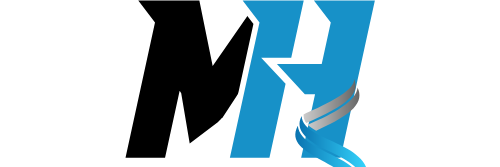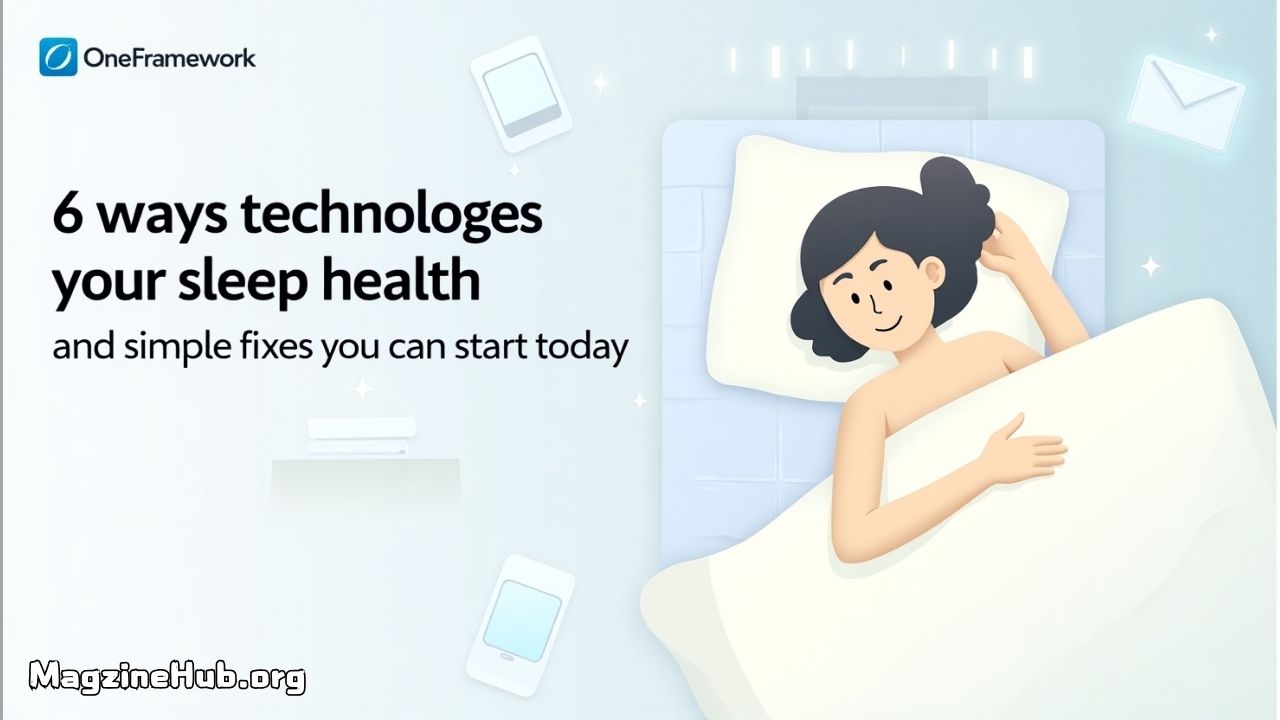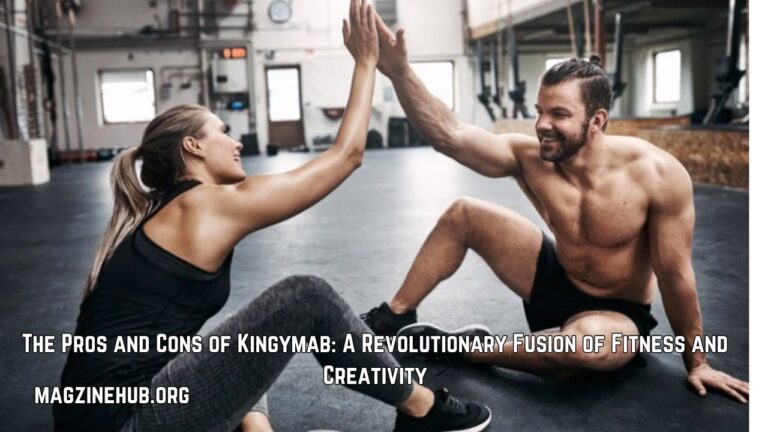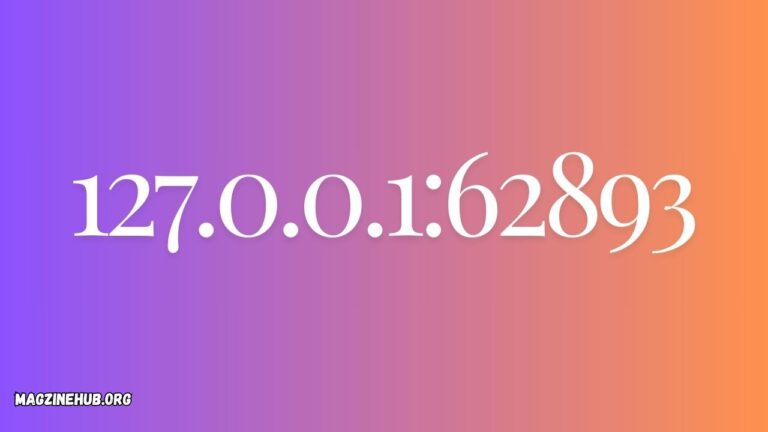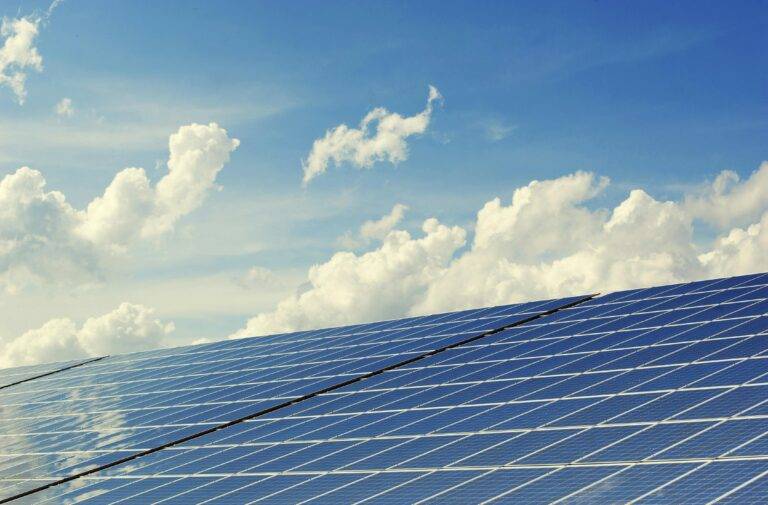OneFramework 6 Ways Technology Affects Your Sleep Health (+ Expert Tips)
Struggling to sleep? Discover the oneframework 6 ways technology affects your sleep health — and simple fixes you can start today. Sleep better with our expert OneFramework guide!
Introduction: Why Sleep Matters More Than Ever
Sleep is like magic for our body and mind.
When we sleep well, we feel happy, healthy, and full of energy. But today, many people have trouble sleeping. One big reason? Technology.
Phones, tablets, TVs, and laptops are awesome, but they can hurt our sleep health too.
In this guide, we’ll explore [oneframework 6 ways technology affects your sleep health].
We’ll also share tips to help you enjoy both your tech and your rest.
Table of Contents
Understanding OneFramework and Sleep Health
OneFramework is an easy way to see how technology changes our sleep habits.
It breaks down the different ways tech affects our rest and shows how we can fix it.
When we talk about sleep health and technology, we mean:
- How tech changes the way we fall asleep
- How tech interrupts our sleep cycles
- How tech affects the way we wake up feeling
Good sleep is not just about the number of hours. It’s about deep, peaceful, and uninterrupted rest.
6 Ways Technology Affects Your Sleep Health
Let’s dive into the [oneframework 6 ways technology affects your sleep health] so you can spot the problems and fix them easily.
1. Blue Light Exposure Disrupts Your Sleep
What is Blue Light?
Blue light is the bright light that comes from screens like phones, computers, and TVs. It’s not bad during the day, but at night, it can confuse your body.
How It Hurts Sleep:
- It blocks your body from making melatonin — the hormone that makes you sleepy.
- Your circadian rhythm (your body’s natural clock) gets mixed up.
- It tricks your brain into thinking it’s daytime.
Signs You Might Have a Problem:
- You feel wide awake at bedtime.
- You can’t fall asleep for hours.
- You feel tired but just can’t doze off.
Easy Fixes:
- Turn on “Night Mode” on your devices.
- Use blue light glasses when you need to work at night.
- Power down screens an hour before bedtime.
2. Notifications Wake You Up (Even When You’re Asleep)
Phones buzzing at night? Bad news for your brain.
How Notifications Disrupt Sleep:
- Alerts, dings, and buzzes wake you up.
- Even silent vibrations can interrupt deep sleep stages.
- Your sleep cycles get broken, leading to sleep disruptions.
Tips to Avoid This:
- Use “Do Not Disturb” mode every night.
- Keep your phone away from your bed (or even outside the room).
- Use an old-fashioned alarm clock instead of your phone.
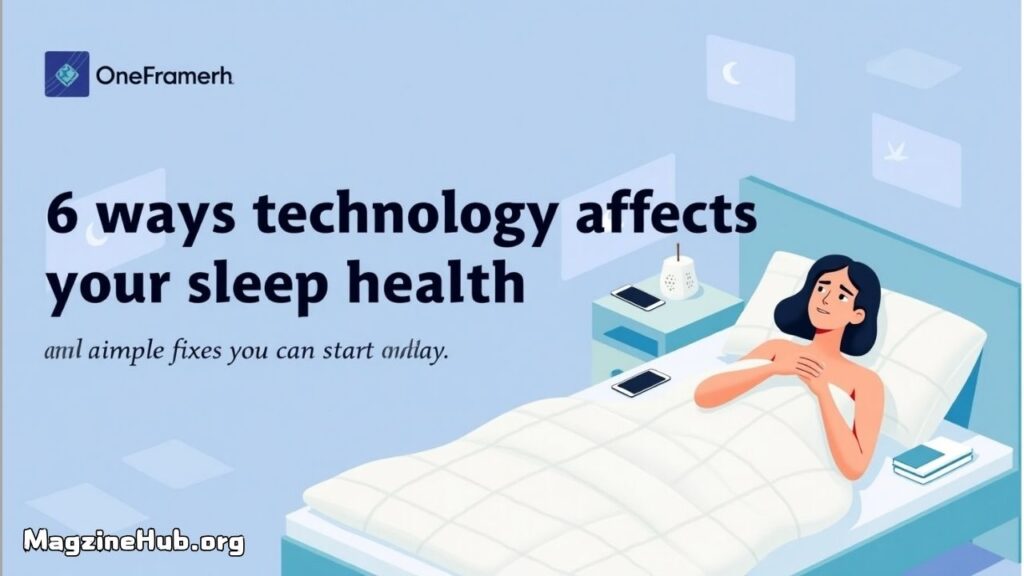
3. Tech Increases Stress and Anxiety Before Bed
Technology can make your brain too busy at bedtime.
How It Happens:
- Watching bad news or stressful shows raises stress hormones.
- Social media scrolling makes your brain super active.
- Video games, emails, and work texts can trigger anxiety.
Signs You’re Too Stressed:
- Racing thoughts at night
- Tight muscles and fidgety feelings
- Waking up feeling worried
Solutions for a Calm Mind:
- Create a bedtime routine that doesn’t include screens.
- Try deep breathing or mindfulness before sleep.
- Swap scrolling for a paper book or gentle music.
4. Overstimulation: Your Brain Won’t Power Down
When your brain stays busy, it doesn’t get the “time to sleep” message.
How Overstimulation Affects Sleep:
- Games, videos, and chatting late keep your brain firing.
- Your brain needs quiet time to get ready for sleep.
- Without downtime, you’ll toss and turn.
How to Calm an Overactive Brain:
- Power down screens 30-60 minutes before bed.
- Do calming activities like drawing, journaling, or puzzles.
- Set a “tech bedtime” alarm.
5. Technology Makes Sleep Apnea Worse (Sometimes)
If you have sleep apnea, tech can be both a helper and a problem.
How It Hurts:
- Late-night screen time can worsen breathing issues.
- Poor posture from slouching with devices can block airways.
How Tech Helps (When Used Right):
- Sleep tracking devices can monitor breathing.
- Special apps can remind you to sleep in better positions.
Best Advice:
- Talk to your doctor about good tech tools for sleep apnea.
- Balance your tech use with healthy habits.
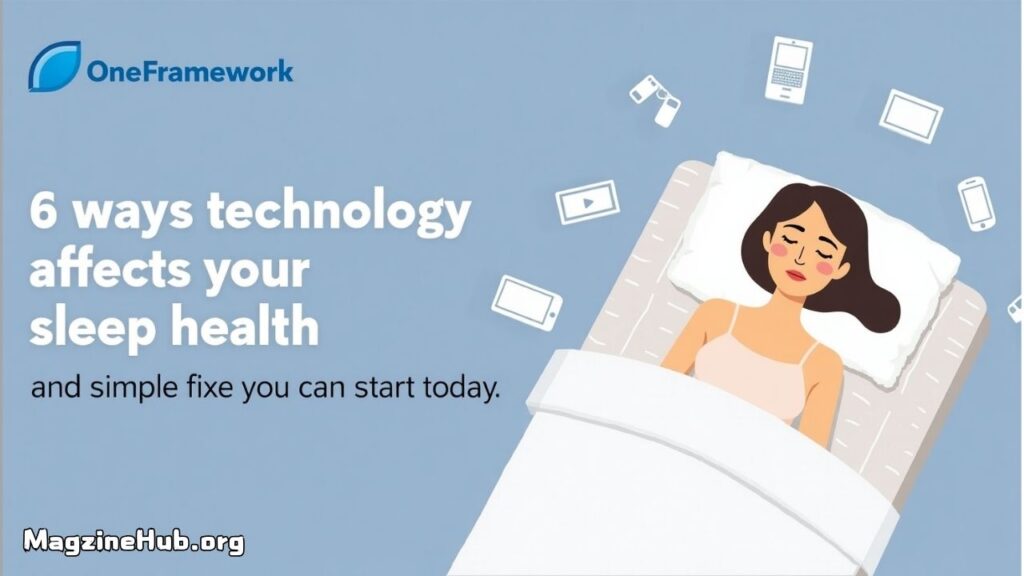
6. A Sedentary Lifestyle Hurts Your Sleep
When you spend too much time sitting and not moving, it affects your sleep health too.
How Sitting Too Much Affects Sleep:
- Your body doesn’t use up enough energy during the day.
- You feel restless at night but not sleepy.
- Your muscles and mind don’t get their natural tiredness.
How to Move More:
- Take walking breaks every hour.
- Play outside, stretch, dance — just move your body!
- Exercise during the day so you sleep better at night.
Solutions to Protect Your Sleep Health in a Digital World
Here’s a simple plan you can follow:
1. Create a Digital Curfew:
No screens 1 hour before bed.
2. Use Tech That Helps:
Apps that offer digital wellness strategies like meditation and calming sounds.
3. Take Mini Digital Detoxes:
Choose a day each week to unplug for a few hours.
4. Set Tech Boundaries:
Keep phones out of the bedroom.
5. Move More During the Day:
Walk, stretch, and stay active.
6. Practice Sleep Hygiene:
- Keep your bedroom dark and cool.
- Use comfortable pillows and blankets.
- Go to bed and wake up at the same time every day.
FAQs About Technology and Sleep Health
Q1: How does technology affect sleep health?
Technology affects sleep by exposing you to blue light, increasing stress and anxiety, and disrupting your circadian rhythm. Too much tech use before bed can lead to sleep disruptions and poor sleep quality.
Q2: Can blue light glasses really help?
Yes! Blue light glasses can block the harmful light that messes with your sleep cycle, helping you feel sleepier at night.
Q3: How long before bed should I turn off my devices?
Experts suggest turning off screens at least 30 to 60 minutes before bedtime to give your brain a chance to relax.
Q4: Is it okay to use sleep tracking apps?
Yes, but make sure the apps you use help you relax and aren’t giving you more reasons to check your phone.
Q5: What is the best way to build a healthy tech routine?
Start small! Try setting a digital curfew, moving more during the day, and using your tech for positive activities like meditation.
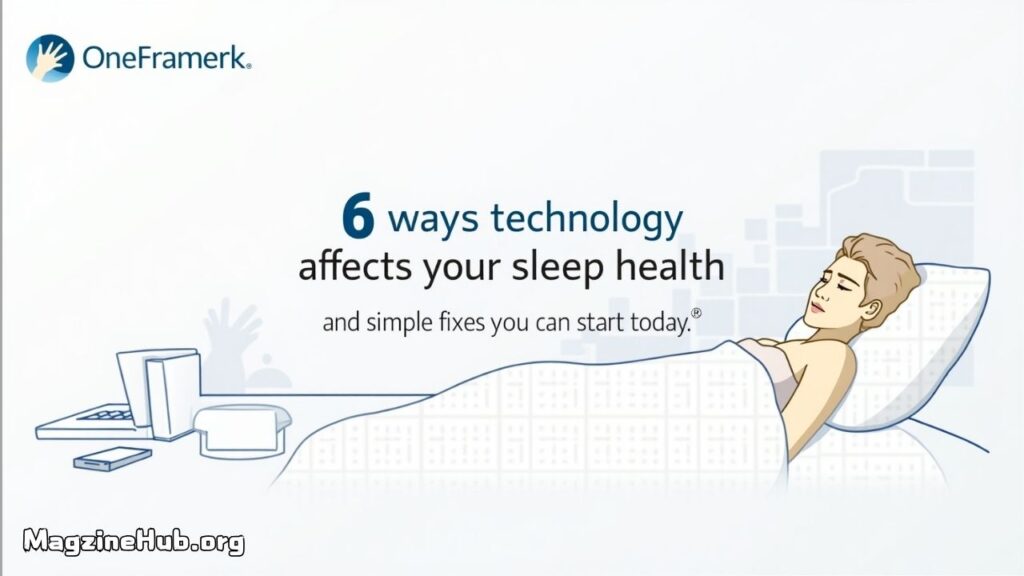
People Also Ask (PAA)
What are the top 6 ways technology impacts sleep?
The [oneframework 6 ways technology affects your sleep health] are: blue light exposure, notifications disrupting sleep, stress and anxiety, brain overstimulation, sleep apnea effects, and encouraging a sedentary lifestyle.
How can I reduce the negative effects of technology on sleep?
You can reduce the effects by setting tech-free times, using blue light filters, practicing mindfulness, and keeping devices out of the bedroom.
Does screen time really cause sleep problems?
Yes, research shows that screen time before bed can lower melatonin levels, confuse your circadian rhythm, and cause sleep disruptions.
What is digital detox for better sleep?
A digital detox means taking a break from screens — especially before bed — to reset your mind, body, and sleep patterns.
Conclusion: Take Back Your Sleep
Now you know how technology can sneak in and steal your good sleep.
But the good news is: you can fight back!
By understanding the [oneframework 6 ways technology affects your sleep health] and making smart choices, you can enjoy your tech and still get a deep, refreshing rest every night.
Sweet dreams! 🌙
